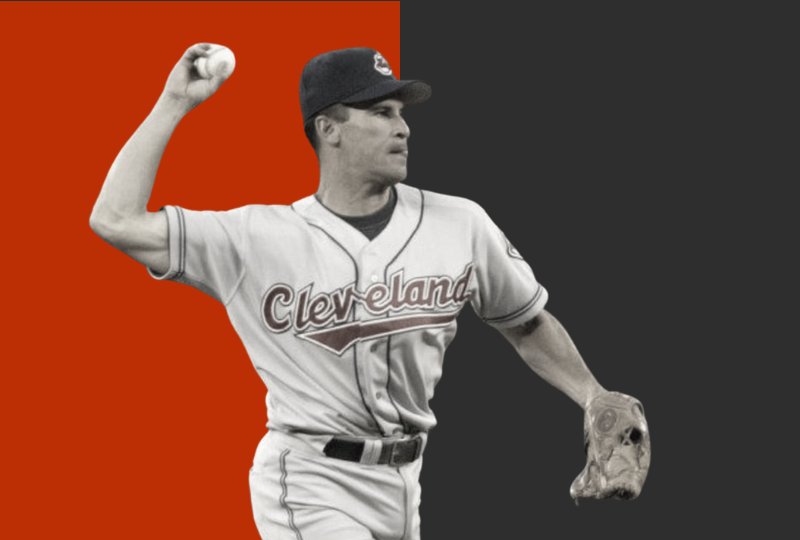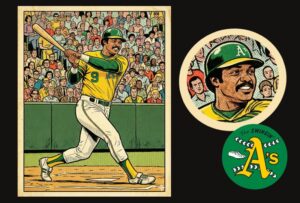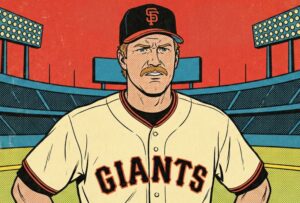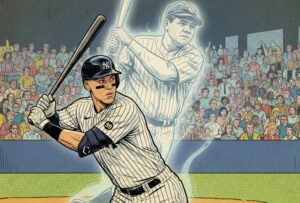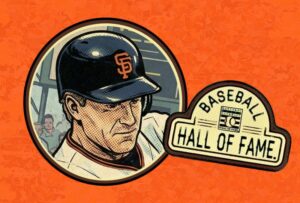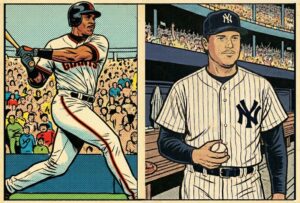Omar Vizquel, a name synonymous with exceptional defensive play at shortstop, has etched his place in the annals of baseball history. Playing in an astonishing four decades and across 24 seasons, Vizquel turned the shortstop position into his own personal stage, showcasing agility, precision, and a knack for making the impossible seem routine. His efforts were rewarded with 11 Gold Gloves, a testament to his prowess on the field.
However, as Vizquel stands on the precipice of baseball immortality with his seventh appearance on the Hall of Fame ballot this December, his legacy is clouded by controversies off the field. Scandals involving allegations of domestic violence and sexual harassment have cast a shadow over his career achievements, threatening to overshadow his contributions to the game and diminish his chances of achieving baseball’s highest honor.
Vizquel’s Hall of Fame Voting Takes a Significant Hit
Following an upward trend in Hall of Fame voting, Omar Vizquel’s standing took a drastic turn. In 2019, he had made a notable leap, garnering 43% of the votes. His momentum continued into 2020, securing a promising 52.6%. However, the tide shifted dramatically in January 2021, when his vote percentage receded to 49.1%.
This decline was in the wake of serious allegations made by his wife, Blanca, in December 2020, where she accused him of repeated instances of domestic violence. The situation worsened over the summer of 2021 with the emergence of a civil lawsuit against Vizquel.
An autistic batboy who worked under Vizquel during his tenure as the manager of the Birmingham Barons accused him of sexual harassment, detailing deeply troubling allegations. These revelations caused Vizquel’s support from the Baseball Writers’ Association of America (BBWAA) to plummet.
The vote in his favor dropped to a mere 23.9%, marking a 25.2% decrease from the previous year. This loss was unprecedented in the modern era of Hall of Fame voting, starting from 1966, surpassing the record previously held by Luis Tiant for the most significant year-to-year decline.
In the 2023 voting cycle, the situation further deteriorated for Omar Vizquel, as his Hall of Fame chances took another hit. Garnering only 19.5% of the vote, it appears almost impossible for him to achieve the necessary 75% in his remaining four years on the ballot.
Critics and supporters alike remain divided over Vizquel’s legacy. While a passionate group hails him as one of the greatest defensive shortstops – second only to Ozzie Smith in their eyes – others argue that Vizquel’s achievements with the glove are overblown and that his offensive output falls short of Hall of Fame standards.
Omar Vizquel: The Early Years
Born on April 24, 1967, in Caracas, Venezuela, Omar Vizquel’s path to baseball stardom started humbly when the Seattle Mariners signed him for a mere $2,000 in 1984. Dedication and raw talent propelled the young switch-hitter through five challenging seasons in the minor leagues before making his Major League Baseball (MLB) debut with the Mariners on April 3, 1989.
This debut, interestingly, occurred just 21 days before his 22nd birthday and coincided with the MLB introduction of his renowned teammate, Ken Griffey Jr. Despite Vizquel’s adept fielding skills demonstrated during his rookie season, his offensive contribution was minimal, posting a batting average of .220, along with a .273 on-base and .261 slugging percentages.
This performance placed him well below the average offensive output for Mariners’ players, a fact that wasn’t overlooked by those calculating MLB odds at the time.
An injury in 1990 delayed Vizquel’s season start until July 5, limiting his playtime. However, the subsequent seasons saw him evolve into a defensive powerhouse at shortstop, though his batting remained lackluster.
Over his first three MLB seasons, Vizquel’s batting statistics – a .230 batting average, .290 on-base percentage, and .283 slugging percentage – although improved, were still considered below par. Despite these limitations with the bat, “Little O” quickly established a reputation as a highly-skilled defender, a recognition supported by defensive metrics that ranked him among the top four defensive shortstops in the American League from 1990 to 1993.
Omar Vizquel: Highlighting an All-Star Career
In 1998, Vizquel, under the management of Mike Hargrove, was selected for his first All-Star team, a remarkable feat considering the competition in the American League at that time. With legends like Derek Jeter, Alex Rodriguez, and Nomar Garciaparra redefining the shortstop role, securing a spot in the All-Star lineup was a testament to Vizquel’s skill and determination. He didn’t just stop there; Vizquel made the All-Star team again in 1999, a year that proved to be his best offensively.
He set personal records in batting average (.333), on-base percentage (.397), and slugging percentage (.436), along with stealing 42 bases. That year, he also achieved career highs in hits (191) and runs scored (112). His overall performance placed him 11th in the American League for the season and 16th in the MVP voting.
The 1999 season was also significant for Vizquel as he teamed up with future Hall of Famer Roberto Alomar. The pair excelled in defense, becoming the first double-play duo since the 1970s to win consecutive Gold Gloves for three straight years. Despite his offensive dip in subsequent years, Vizquel’s defensive prowess remained unchallenged, evidenced by his third and final All-Star appearance in 2002 and his two subsequent Gold Gloves with the San Francisco Giants.
However, toward the end of his career, Vizquel faced challenges offensively, leading to his retirement in 2012 after an illustrious career spanning 24 seasons.
The Takeaway
Omar Vizquel’s career in baseball presents us with both remarkable achievements and significant controversies. His defensive skills were nothing short of extraordinary, setting him apart as one of the best shortstops the game has seen. He was often compared to Ozzie Smith, another legend, for his unmatched agility and ability to make plays that seemed impossible. Despite these accolades, Vizquel’s career was not without its challenges. His offensive game was often critiqued as not being strong enough to match his defensive prowess.
However, it was the allegations against him that brought a shadow over his legacy. The charges of domestic violence and sexual harassment significantly impacted his reputation and his standing in the Hall of Fame votes. These controversies serve as a stark reminder that an athlete’s career is not only measured by their performance on the field but also by their alleged actions off of it.
Vizquel’s story is a complex blend of supreme talent and flawed human nature, illustrating the highs and lows of a public figure’s life. While his contributions to baseball are unforgettable, the allegations against him remind us that heroes can also have their downfalls.

